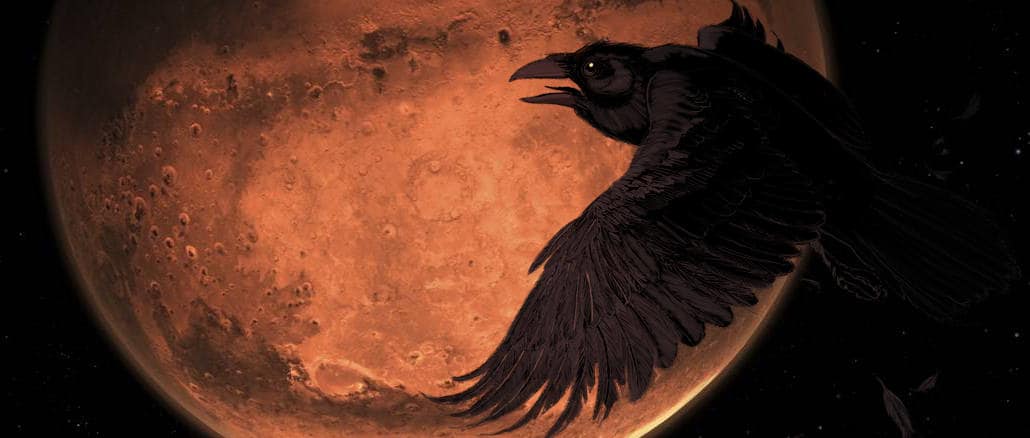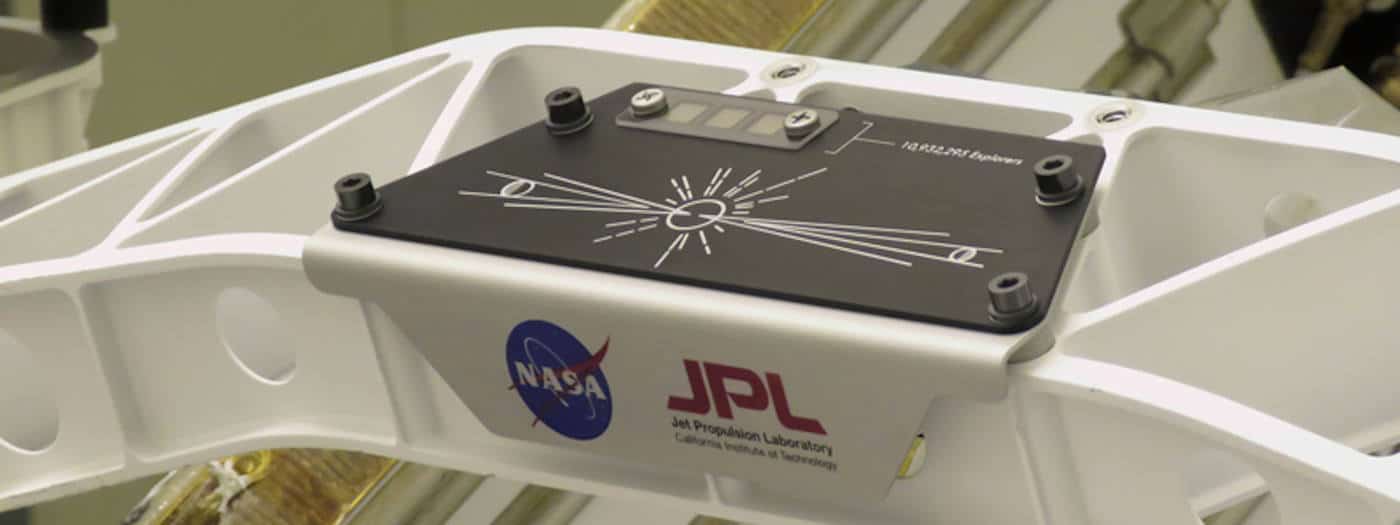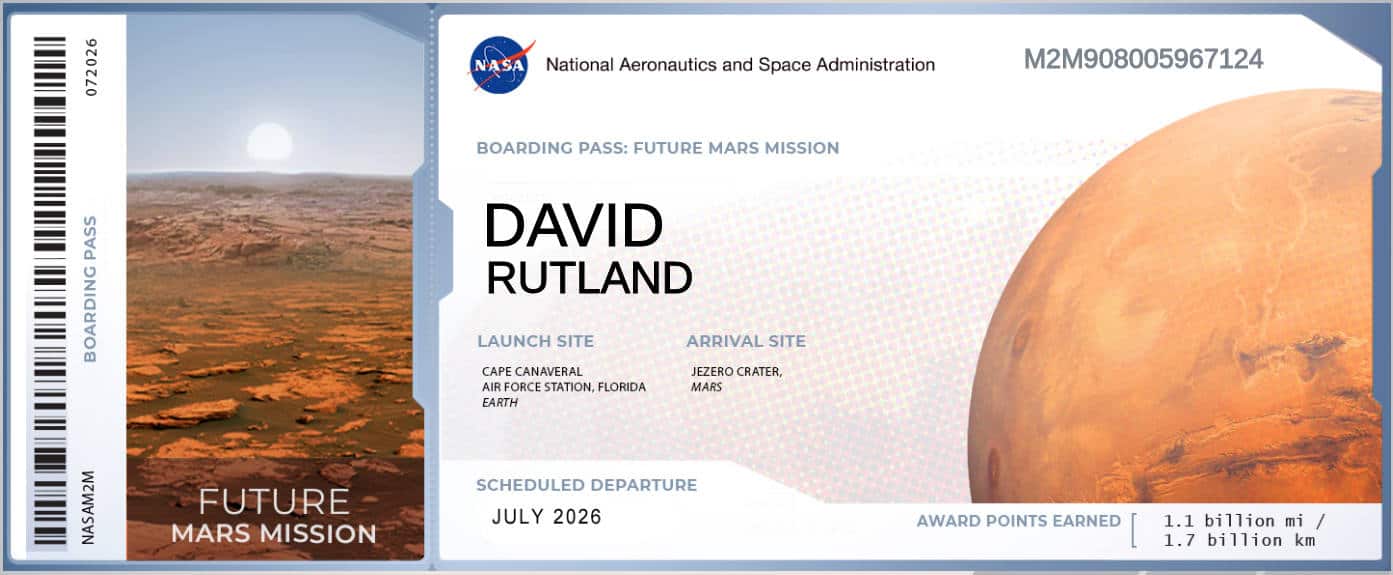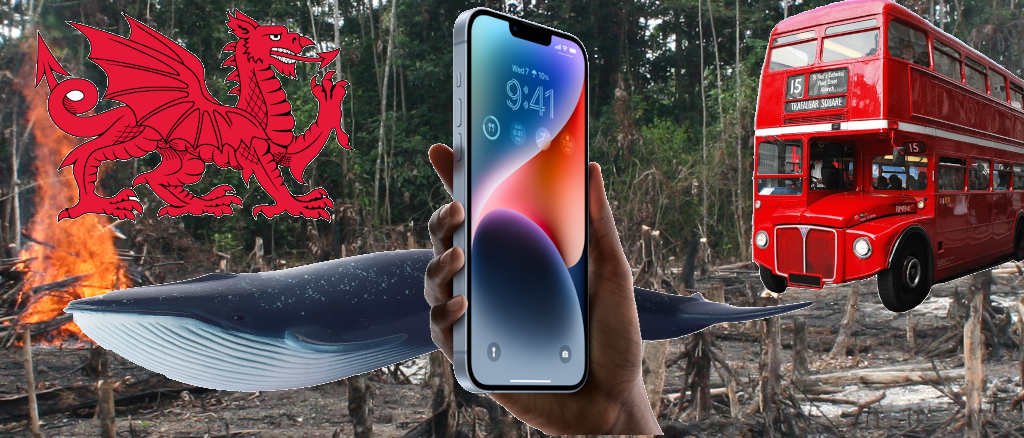Get My Ass to Mars - The Crow heads into space

The human race must colonise space within the next two centuries or it will become extinct. These are not my words - they belong to the late Prof. Stephen Hawking. He was a clever guy, and here at The Crow, we don’t feel that we’re particularly qualified to argue with him.
His argument boiled down to the fact that as a species, we have come close to the edge far too many times already. We just about managed to avoid complete nuclear anhilation in the period between the first nuclear tests deep in the New Mexico Desert in 1943 and today. During that period, there have been a dozen or so close calls.
Whether or not they would have completely wiped out the human race or not is up for debate, but I’m going to follow up with another quote, widely attributed to a different physicist.
'I know not with what weapons World War III will be fought, but World War IV will be fought with sticks and stones.'
- (probably not) Albert Einstein
Scary stuff. Right?
Even leaving aside mankind’s unfortunate tendency to develop newer, bigger, and more devastating weapons with which to destroy itself, there are inummerable other threats to our existence - climate change could render this entire ball of rock completely uninhabitable for example. Or entirely submerged.
And then there are the other things in space - which could destroy us even if we don’t screw the pooch through our own inattention and greed. Comets, asteroids. That kind of thing.
So, yeah. We’re agreeing with Hawking here. The only way to ensure survival of the species is to spread ourselves out across the solar system. Then the galaxy, the universe, and eventually the multiverse as we seek to avoid the inevitable consequences of entropy by hiding our consciousness in another dimension.
But Mars is the first step - and a modest one at that.
Because we’re never going to live on Mars. Sure, it might provide a temporary bolthole if the Earth is smashed to smithereens by a meteor or if the moon shatters a la Neal Stephenson’s “SevenEves,” but as a long term refuge for humanity, it’s a bit crap.
Even in the most polluted human cities on earth, it’s still easier to breathe than on the surface of Mars. It’s easier to stay warm in Antarctica than it is on Mars’s less than balmy equator. It’s less trouble finding something to drink in the middle of the Arabian desert than it is to pull a pint of water from Mars’s polar caps.
But it’s a start, and the robots and rovers currently gathering dust on the Martian surface have provided invaluable data on what it means to survive on an alien world. Data we will probably need in a hurry one day.
Last week, NASA’s Perseverance rover gracefully touched down in Jezero crater after a journey of more than six months. Its mission is to identify past environments that were capable of supporting microbial life, look for signs that such life once existed, and prepare for humans by testing oxygen production from the Martian atmosphere.
And on a placard, there are three fingernail-sized chips bearing almost 11 million names - each etched individually by electron beam.
If the Earth dies tomorrow, and no other humans are ever born, those names will forever be safe - among the last artefacts of humanity. secure on another world.
In the absence of practical immortality, this is the next best thing.

One day, this might be all thatremains of the Human race
The Crow is an amateur astronomer and astrophotographer. I have a home-made rig attached to a 130mm Dob. I love to spend autumn evenings in the back yard, looking at Jupiter, Saturn, and of course the Martian ice caps.
It would be beyond wonderful to be able to focus on the red planet as it shoots across my eyepiece, and know that on that tiny red dot in the sky, my name would live forever.
Ensuring Immortality
Obviously, Perserverance is already on Mars, and there’s no way of getting my name on board at this point. I’ve missed the bus. Or rocket. Whatever.
Fortunately, NASA has already opened its virtual gates to individuals wanting their memorialised monikers to traverse the blackness of the void towards the red planet.
Naturally, I was desperate to get on board. I filled in the necessary deets and received a boarding pass in return.

What? You thought 'The Crow" was my legal name?
The launch date is set for July 2026, and as yet, we don’t know the name of the robot my name will be etched into or even the name of the vessel it will be carried on.
We don’t even have a mission profile yet.
I’m thinking of it like one of those discount ‘lucky dip’ vacations where holidaymakers turn up at Manchester airport without a clue which country they’re going to or what hotel they’ll be staying in once they arrive. Do they bring bikinis or mountain boots? No-one knows.
There are air miles associated with my one-off email address, so if I put my name down for another mission, those miles will be added to my account. Nice.
The Crow is going to Mars.
This site is hosted on a Raspberry Pi 4B in the author's living room (behind the couch). If you fancy building a website, but would prefer not to have hardware cluttering up your house, you can get reasonably priced hosting from BlueHost
On the other hand, if you're worried about being followed online, consider using PureVPN to cover your tracks.
These are affiliate links. Obviously. If you're feeling generous, you can buy me a coffee.



